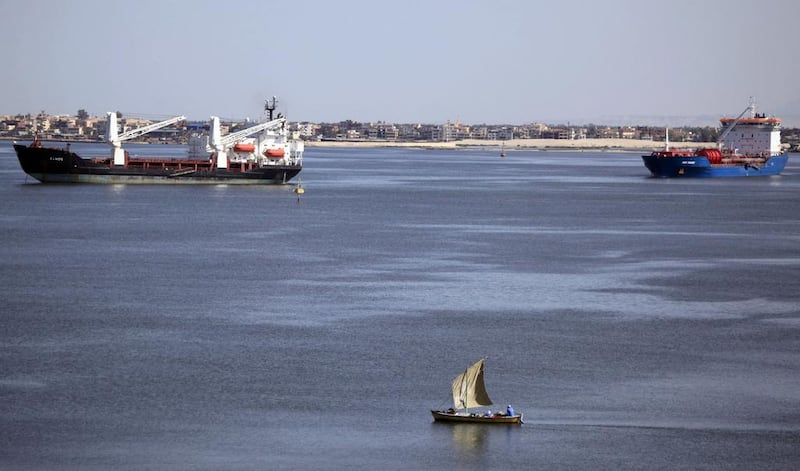Egyptian presidents have long been fond of mega-projects. Gamal Abdel Nasser had the Aswan High Dam, which was intended to electrify the public towards his ambitious Arab socialist development programme. Hosni Mubarak had his Toshka project, which was meant to create a new Nile Valley to absorb some of the country’s runaway population growth and the alarming loss of arable land to urban development.
Toskha would achieve this by diverting water from Lake Nasser into the desert with the aim of expanding Egypt’s agricultural acreage by 10 per cent. Despite its noble ambitions, “Mubarak’s pyramid”, as this project was described, has been mired by mismanagement and poor planning.
Abdel-Fattah El Sisi, the new president, has already broken ground on his own mega-project, billed not as the new Nile Valley but as the new Suez Canal. While Nasser nationalised the Suez Canal and Anwar Sadat’s army crossed it, Mr El Sisi’s ambition is to expand the waterway by building a second 72km-long channel that is expected to boost the traffic passing through Suez.
The project also fits into the government’s ambition to transform the Suez region into an industrial, technological and international trading hub.
Some experts wonder whether the extension will actually boost the canal’s capacity, since more than 90km of the waterway will remain single-carriage. In addition, there may not been enough additional demand to justify the investment.
On top of that, the project has already run into technical complications. Ignoring warnings by irrigation experts, the digging began too close to the original canal, which has caused the site to fill with groundwater. Pumping the excess water out carries a price tag of $1 million per day.
It is my view that Egypt would be much better off diverting the estimated $8.4 billion it will cost to build Suez Canal II to another, far more pressing mega-project: Nile Delta I.
Since ancient times, the Nile Delta, which covers 25,000 square kilometres and houses nearly half of Egypt’s population, has been the national breadbasket. Yet this extremely fertile fan of land in the middle of the desert is under threat from rising sea levels and sinking sediment.
No Egyptian government has taken any substantial action to beat back this erosion, aside from constructing a few small barriers to protect important urban areas on the coast.
This is surprising in light of the decades of warnings provided by both local and international experts. For example, more than a quarter of a century ago, researchers at the Smithsonian Institution delivered dire warnings about future disaster.
Today, the alarm among experts has reached fever pitch.
“The total [area of the Delta] expected to be impacted by a rising of the sea level by one metre during this century will be 8,033 square kilometres, which is nearly 33 per cent of the total area of the Nile Delta,” predicted Khaled Ouda, a geologist at Egypt’s Assiut University, in an interview with Al Jazeera earlier this year.
Given that rising sea levels and a sinking delta would radically redraw Egypt’s natural map, the price of averting disaster is surprisingly low – less than half of the reported cost of the Suez Canal project.
A plan proposed by Egyptian engineer Mamdouh Hamza involves the construction of a concrete wall along the Delta’s entire coastline and skirting it with a plastic diaphragm to prevent saltwater seepage.
The total estimated cost of such a scheme is $3 billion. The remaining billions could be invested in building impenetrable barriers several metres below sea level to hold the crumbling Delta in place and avoid seawater salinating its aquifer.
Beyond these emergency measures, Egypt needs innovative solutions to replenish the Nile Delta through restoring the flow of natural silt, which not only protects against sea erosion but also acts as a powerful natural fertiliser. But this is more easily said than done – since the silt is sitting at the bottom of Lake Nasser a thousand kilometres upstream.
Inaction on these fronts will prove foolhardy. Failing to protect the gift that is the Delta will turn the Nile into a curse for Egypt.
Khaled Diab is a Belgian-Egyptian freelance journalist
On Twitter: @DiabolicalIdea





